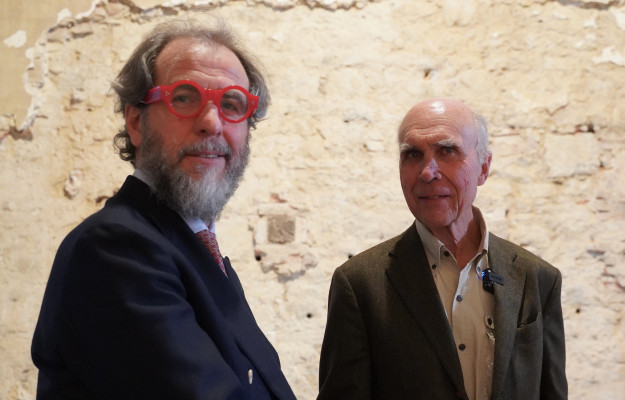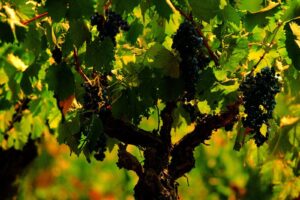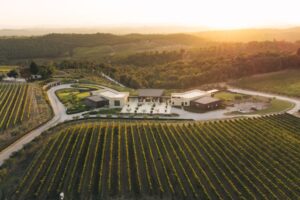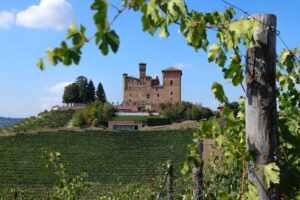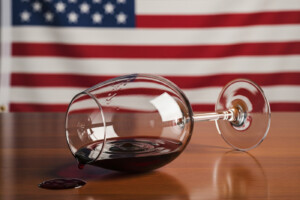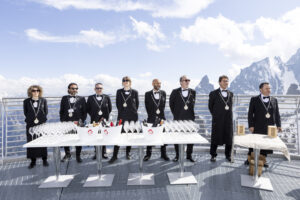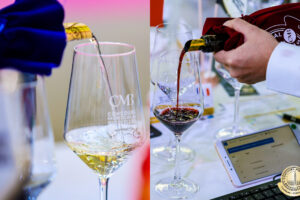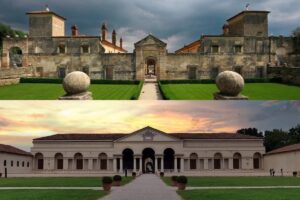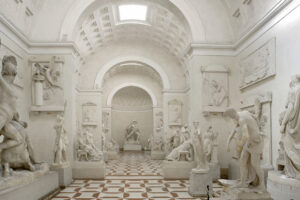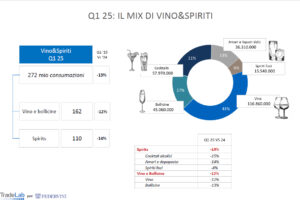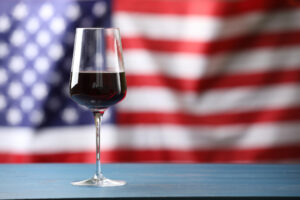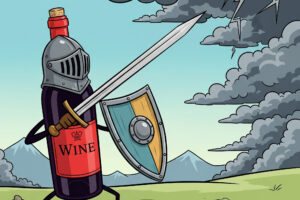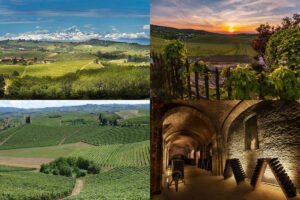Wine is a “medium” for territories and their civilization, and winemakers are guardians and at the same time, innovators. It is also a product that goes against the trend and towards “parcelisation” an expression of the territories, in an increasingly standardized world. The vine is a plant that resists and adapts and has always known how to live with climate change over the centuries. Vines will certainly know how to do so again, thanks to the work and care of the winemakers. These are the profound thoughts and messages from Monsieur Aubert De Villaine, co-owner (until 2022) of one of the most prestigious wineries in the world, Domaine de la Romanée-Conti, icon of Burgundy, and for the last half a century, the leading figure of one of the territories of the most famous wines in the world. WineNews met with him, once again, face to face (video coming soon), during the tribute in memory of the “Master of Sangiovese”, Giulio Gambelli (Aubert De Villaine is honorary president, ed.), promoted by Pasquale Forte at Podere Forte, surrounded by the beauty of the vineyards in Val d’Orcia, a Unesco World Heritage Site. We talked about wine, and also history, culture, current events and the future, with one of the most prestigious personalities who has indelibly influenced world winemaking, bringing it to the highest level of quality, starting from the “fine wines” market. He has, though, always remained faithful to defending the concept of terroir, the link between man and nature, and taking care of it as a “good family man” cares for his family; that is, putting human, cultural and sustainable values — the true heritage of each territory — ahead of the economic aspect.
We asked Aubert De Villaine what wine and its world represent for him today, and his answer was crystal clear, “for a vigneron the wine world belongs to him, his vineyard is his world from the beginning. It is where he feels at home, and today this is a family reunion for me, all the vignerons who are here have a very similar vision of viticulture”.
The wine world has changed in many respects, over the last fifty years that Aubert De Villaine has experienced it first hand, but the similar vision still fits. “It is very difficult for me to talk about wine in general, I can talk about the evolution of wine in Burgundy, for instance, which has been truly remarkable. Wine in Burgundy, but I think this is true everywhere, has gone from a “productivist” era, in which there was a tendency to produce as much as possible, to an era in which there was a focus on quality, which the market requested. In addition to quality”, De Villaine explained, the market has seen an increase in demand for local wines. And, this comes at a time when in other sectors we have moved towards standardization, while wine, going against the tide, has moved towards parcelling, the “exact opposite of standardization”. Therefore, wine can be defined the "medium" for territories. “Yes, I think you can say that. There is a saying in France that explains it very well: "there is no great predestined vineyard, there are only ambitions of civilization", and I think the definition is exact and tells the truth. Wine is the guardian of culture: without local wines, many aspects of our culture would be lost”.
It can be said, then, that vignerons must be the custodians of their territories, going beyond the economic and entrepreneurial aspect of wine production. “The two interests coincide. The patrimonial economic interest that wine produces”, De Villaine explained, “is the vigneron who produces local wines. This is because the market requests those wines, and so there is a connection between the two interests, which applies to all denominations the world over”. According to many, the wine we drink today is the best ever, in terms of quality, thanks to progress in the vineyard and in the wineries, but, in our opinion, it is also due to its cultural value: do you agree? “The quality of a wine is the cultural expression of a place. What makes a wine great? I repeat, its aspiration towards civilization, and therefore it is an expression of culture, so there is a strong link between the quality of a wine and the culture that that wine represents”.
A topic that crosses all the territories and which concerns not only wine, is that of climate change. Global warming and lack of water are issues that winegrowers have been dealing with for years.
Some foresee catastrophes and total revolutions in the vineyard, and some, on the other hand, preach calm and focusing on science and research to work on adaptation without upsets (like Donato Lanati, one of the top leading Italian winemakers, founder of the “Enosis Meraviglia” Research Laboratory and consultant to the most prestigious wine names in Italy and France, as reported here https://winenews.it/it/lanati- coping-with-climate-change-and-maintaining-traditional-viticulture_492961/, said recently, ed.), Aubert De Villaine agrees with the latter. “The grape vine is an extraordinary plant, it has already begun to adapt, while man suffers, the gardens suffer, the forests suffer, but the vine resists. It’s incredible. We’ve been experiencing changes in the climate in France since the fourteenth century”, De Villaine said, “and the vineyard has gone through many different and difficult moments, extreme cold and extreme heat, and has always resisted. Today, in this phase of global warming, I am convinced that the vineyard, with the help of the vigneron, will show us that it will be able to adapt once again. I am sure of this. If I take a 2003 wine, a year when the vineyard suffered greatly from the heat, and compare it with 2020 or 2022, years when the heat was comparable to that of 2003, the vineyard suffered much less, and I believe that this is a demonstration of the ability to adapt to climate change. Naturally, with the help of the vigneron, adequate pruning, the choice of clones that best adapt to the heat, and management of the foliage and vegetation. Many techniques have been tested which favor the adaptation of the vineyard to climate change”. Take it from someone who has been in the spotlight for over half a century of his life in the world of great wines and vineyards, in the most prestigious company in Burgundy, and in the wine world.
Copyright © 2000/2025
Contatti: info@winenews.it
Seguici anche su Twitter: @WineNewsIt
Seguici anche su Facebook: @winenewsit
Questo articolo è tratto dall'archivio di WineNews - Tutti i diritti riservati - Copyright © 2000/2025










